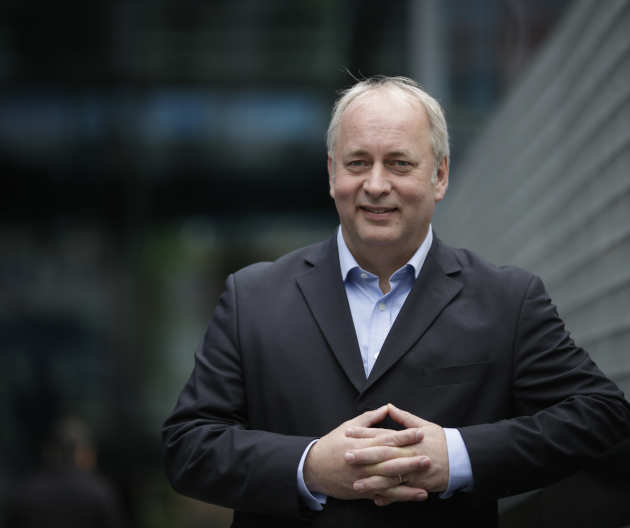"Most big problems won't be solved by individuals. Our joined-up approach makes a difference"

As I write this, the newspapers are full of reports of how Imperial’s COVID-19 vaccine will shortly start clinical trial. It is a welcome ray of hope, but long before testing began, the multidisciplinary Imperial Network for Vaccine Research had been preparing for a possible new pandemic.
The Network’s world-leading experts are at the forefront of every area relating to vaccine research, addressing knowledge gaps ranging from the extent to which particular infectious diseases affect people around the world, to how best to stimulate immunity using novel technologies and accelerate the licensing and uptake of vaccines.
It’s a perfect example of Imperial’s heterogeneity – and that’s the essence of my job: to cut across all research and enterprise and bring people together.
Today, the most interesting science and research happens at the boundaries and confluence of disciplines and approaches. There was a time when many people thought the best work came from a lone scholar working in the dark, thinking deep thoughts. But most big problems won’t be solved by individuals, they will be solved by people working collaboratively.
You need different backgrounds, viewpoints, disciplines. From AI to synthetic biology to space science – in all these fields, engineers need to work with medics, business experts and scientists to make strides.
Luckily, we’re not a traditional university, where everyone stays put in their departments. Instead, as the extensive work of the team of epidemiologists in the Abdul Latif Jameel Institute for Disease and Emergency Analytics (J-IDEA) has shown – mapping, predicting and advising on the spread of the COVID-19 pandemic – we can make a very real difference, both here in the UK and globally.
Each of the six global challenges we’ve defined has a dedicated institute that galvanises and focuses research. Our approach varies, from the top-down structures and institutes tackling the critical problems to the networks we encourage from the bottom up.
We have six global challenge institutes, 20 centres of excellence that have secured a certain amount of funding and 26 networks of excellence – these are the smaller, less formal groups. Between them they cover anything from fintech to robotics to dementia research. One centre for healthcare technology has more than 100 PhD students. What they add is so much more than the sum of its parts.
If you Googled ‘food science at Imperial’ when I first joined Imperial four years ago, for instance, you might think we had no-one in this field. Yet through some excellent community building we have a strong presence across the different faculties in our Centre for Translational Nutrition and Food Research – from business academics looking at sugar tax, medics looking at nutrition, and scientists and engineers searching for methods of evaluating food values and consumption. These are often virtual rather than physical spaces – even the largest institute might be a few meeting rooms and a few staff. We use digital spaces to enable people to ‘bump into’ each other, and that’s very effective.
Having an impact is part of our founding charter. Our global institutes are intended to work on policy as well as research, and we expect great impact. For instance, Imperial scientists co-authored part of a report by the IPCC (Intergovernmental Panel on Climate Change) warning of the consequences of a rise in global temperatures above 1.5°C.
And when you’re just 20 minutes from Westminster it can be easier to have an impact – there are opportunities for politicians to pop in and answer questions, or get a feel for what we’re doing. And it helps, too, that I spent six years in government, as chief scientific adviser for national security. It means I understand how it functions, what the political drivers are, and what will and won’t work.
While AI is my area, if I had my time again I might look at the interface between engineering and medicine. So much can be done to help in terms of prevention of illness and looking after ourselves. Taking engineering and computing techniques and applying them to humans is fascinating.
Nick Jennings is Professor of Artificial Intelligence. In his role as Vice-Provost (Research and Enterprise), Professor Jennings develops enterprise strategy across the faculties of Engineering, Natural Sciences, Medicine and the Business School.